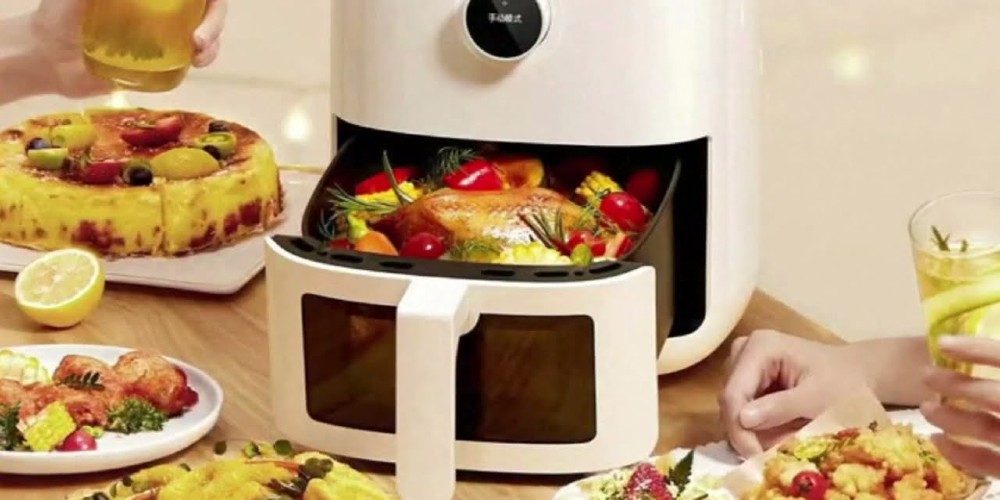The air fryer has become a must-have appliance in kitchens around the world. It’s quick, efficient, and perfect for cooking everything from crispy fries to juicy chicken with minimal oil. But, have you ever considered what else your air fryer might be doing? Reports are emerging that some smart air fryers could be tracking more than just cooking time. Is your beloved kitchen gadget secretly spying on you? Let’s break it down.
The Rise of Smart Kitchen Appliances
Smart kitchen devices are popular because they make life easier. These appliances connect to your Wi-Fi, sync with apps, and let you control cooking remotely. Forget to turn off the oven? No problem. Need a recipe based on what’s in your fridge? There’s an app for that.
But there’s a trade-off to all this convenience. Internet-connected devices collect data—lots of it. From thermostats to doorbell cameras, smart gadgets are constantly gathering information. Air fryers aren’t immune to this trend.
What Kind of Data Could an Air Fryer Collect?
It might sound silly to imagine a kitchen device collecting data on you, but it’s not far-fetched. Many smart air fryers connect to apps for custom recipes, calorie tracking, and monitoring food preparation. Here are some types of data they might collect:
- Usage patterns: When and how often you use the air fryer.
- Meal preferences: What recipes you access or save.
- Appliance settings: Temperature and time adjustments.
While this data might seem harmless, it becomes valuable when combined with other personal information.
What Happens to the Data?
Most companies say they use this data to improve their products and provide better services. For example, data might help developers update apps with more popular recipes or features. But here’s the catch—some brands share or sell this data to third-party advertisers.
That might explain why your social media feed suddenly shows air fryer accessories or health tracking apps after you’ve used your smart air fryer. Companies might be using your air fryer habits to figure out what you’re likely to buy next.
Why Should You Care?
Not all data collection is bad. Some of it genuinely enhances the user experience. However, the problem arises when you’re unaware of it—or when sensitive information gets shared without your consent.
Your air fryer might not be as private as you think. While the data it collects may appear trivial, it contributes to a larger picture about you. Combined with other devices like smart TVs or voice assistants, this information could reveal more about your lifestyle than you’d like.
How to Protect Your Privacy
So, what can you do? Luckily, there are ways to stay a step ahead and protect your data:
- Read the privacy policy: It’s not fun, but it’s worth scanning for how your data’s collected and shared.
- Mind app permissions: Only grant the app access to what’s necessary—skip permissions for contacts, location, or unrelated features.
- Opt-out options: Some apps let you opt out of data sharing. Take advantage of those settings.
- Update firmware and apps: Keeping your devices up to date ensures security patches are applied.
- Use guest Wi-Fi: Connect smart devices to a guest Wi-Fi network to limit their access to your primary system.
Are All Air Fryers Spying on You?
Not all air fryers are connected to the internet. If you’re concerned, consider sticking to a basic, non-smart model. While you’ll miss the convenience of app-controlled cooking, you’ll gain peace of mind knowing it’s not collecting data.
Keep in mind, most manufacturers aren’t out to spy on you maliciously. But the more you know about how your appliances work, the better you can secure your information.
What’s Next for Smart Appliances?
As technology evolves, it’s likely more kitchen gadgets will go “smart.” While this offers exciting possibilities, it also raises questions about data privacy. Consumers need to balance convenience with caution—and ask manufacturers tough questions when it comes to personal data.
The air fryer spying debate might sound like the plot of a movie, but it sheds light on a much bigger topic: how connected devices fit into our lives. By staying informed, you can enjoy your air fryer without it becoming a source of worry. Bon appétit!
What Would You Do If Pharmacies Couldn’t Provide You With Crucial Medications or Antibiotics?
The medication supply chain from China and India is more fragile than ever since Covid. The US is not equipped to handle our pharmaceutical needs. We’ve already seen shortages with antibiotics and other medications in recent months and pharmaceutical challenges are becoming more frequent today.
Our partners at Jase Medical offer a simple solution for Americans to be prepared in case things go south. Their “Jase Case” gives Americans emergency antibiotics they can store away while their “Jase Daily” offers a wide array of prescription drugs to treat the ailments most common to Americans.
They do this through a process that embraces medical freedom. Their secure online form allows board-certified physicians to prescribe the needed drugs. They are then delivered directly to the customer from their pharmacy network. The physicians are available to answer treatment related questions.



